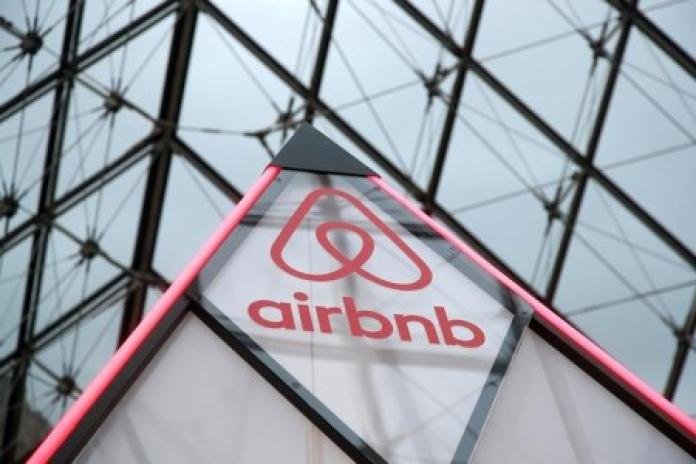
Hybrid Cloud Backup for dummies
Hybrid Cloud Backup for dummies Veeam is the leader in backup, recovery and data management solu- tions that deliver Modern Data Protection. We provide a single platform for Cloud, Virtual,
From the beginning of happy fever and promoting flexing its eco-accreditations, to Airbnb partaking in the products of its shift to mark building, get up to speed with the current week’s greatest advertising news.
This week has seen the Christmas publicizing season start vigorously, with various significant retailers battling to get their bubbly crusade out first. Among those adverts to have dispatched for this present week was the in every case eagerly awaited John Lewis Christmas advertisement, which recounts the account of a 14-year-old kid who meets an accident landed outsider and acquaints her with his family’s merry practices, before she gets back to her home planet.
Where John Lewis once addressed the zenith of Christmas publicizing, the current year’s interpretation has split assessment between advertisers, with some crediting its sincerely determined story and unassuming variety, while others censured it for an absence of imagination and “unpleasant” vibe. Some of John Lewis’ faultfinders looked all the more well on Boots’ Christmas offering this year, a film including a “enchantment” endless sack of presents, entertainer Jenna Coleman and a sweet connection among granddaughter and grandma.
The greatest mission by the retailer in over four years, Boots’ head promoting official Pete Markey told Marketing Week it expands on the prominent accomplishment of the brand’s late spring publicizing push, while including more information driven focusing than any other time. Disney, in the mean time, is expecting to recreate the achievement of its first buyer item Christmas crusade last year with a commonly Disney-esque movement, which pulls on heart strings with a portrayal of a stage father holding with his progression youngsters.

What’s more, M&S dispatched two missions, one for its food business and one for attire and home. The previous rejuvenates Percy Pig interestingly with the voice acting of Tom Holland, the current Spiderman. Curiously, showcasing chief Sharry Cramond is expecting that online media will assume a greater part for the brand’s mission this year than TV or conventional media. There have been numerous other Christmas crusades, with Asda, Argos, Sports Direct and Etsy to give some examples. Predictable across practically these missions is the knowledge behind them: that clients are hoping to pull out all the stops on Christmas this quite a long time after last year’s let down, and that individuals are getting into the happy soul a whole lot sooner.
The season has just barely started and there will be bounty more missions to follow over the course of the following two months. While it would all be able to get a cycle repetitive by the end, advertisers should see Christmas promoting as motivation for solid, innovatively determined brand crusades.
Sustainability dominates the marketing agenda
It was just normal that, with the UN Climate Change Conference (Cop26), starting off this week consideration in the advertising scene would go to the maintainability plan. A few brands went live with eco messages, from Glaswegian brewer Tennent’s talking up its utilization of 100% environmentally friendly power and nearby grain, to the WWF utilizing stop movement to feature the staggering impact of a dangerous atmospheric devation on the Arctic. In the mean time, reusable jug and compartment brand Chilly’s dispatched ‘Reusable method of residing’, its greatest advertisement mission to date, which envisions an existence where UK customers ditch dispensable packs for a more maintainable life.
Moreover, this week Ad Net Zero, the environment emergency drive drove by the Advertising Association (AA), ISBA and the IPA, dispatched a 10-hour internet instructional class offering advertisers reasonable methods to gauge and diminish the fossil fuel byproducts identified with their promoting, impel purchaser conduct change and keep away from cases of ‘greenwashing’.
After two days, Mars, EY and Nomad Foods turned into the furthest down the line brands to join to the World Federation of Advertisers’ Planet Pledge, a worldwide obligation to make their showcasing groups a power for positive change both inside and for customers. The brands join any semblance of Diageo, Tesco, Unilever and PepsiCo to join to the vow, which is empowering CMOs to make a move across four key regions. These incorporate advocating the United Nation’s Race to Zero mission, scaling their association to make a lead on environment move, bridling their advertising to drive feasible buyer conduct and focusing on supportability asserts that can be effortlessly validated.
The responsibilities made and activity taken by brands this week is admirable, yet what makes a difference isn’t what they join to during Cop26. The spotlight must be on significant, long haul, economical change that focuses on the environment emergency inside business, one which advertisers reserve the option to take a lead on.
Airbnb sees products of brand-building showcasing technique
In February Airbnb said it would make a super durable slice to its general advertising venture, having noticed that cutting spend during Covid littly affected traffic. That cut has principally been on the exhibition promoting side, with the business rather putting resources into building the brand and “teaching” clients. From that point forward, Airbnb has reliably supported the strength of its choice in its quarterly monetary outcomes, and its second from last quarter update was the same.
Truth be told, the business posted its most elevated at any point benefit this quarter, with total compensation up 280% year-on-year to $834m (£618m). Changed EBITDA broke the billion dollar obstruction interestingly, as the business came to a “significant achievement” of one billion visitor appearances. The brand has credited the job of its “streamlined advertising technique” in driving this development. Over the quarter it expanded deals and promoting consumption by 136% year-on-year to $264m (£196m) as it put resources into its image building ‘Made by Hosts’ mission, driving a 15% expansion in general rush hour gridlock in the nations where it ran. Airbnb is an ideal illustration of a business that sees how the exhibition/brand separation should search for its own image. The most recent couple of years have seen Airbnb’s mindfulness and pertinence rise so high that its image name is currently utilized as an action word in famous vernacular – so it doesn’t have to utilize execution advertising to drive traffic.
All things being equal, it needs to help voyagers to remember what Airbnb offers according to a brand point of view that adversaries don’t and to guarantee it stays front of psyche. Pushing ahead, the business has said it will stay zeroed in on accomplishing long haul benefit through “high advertising proficiency”, close by diminished variable expenses and firmly oversaw fixed costs.

Sainsbury’s and Next attest obligation to computerized Marketing
Given the shift towards web based business achieved by the pandemic, brands across the retail range are inclining up their emphasis on advanced advertising. This week Next announced that flooding on the web deals had assisted the business with accomplishing a £4m benefit during the second from last quarter, moving it to pick “further interest in advanced advertising”. The attention on everything advanced bodes well for Next, which saw complete gathering on the web deals increment 40% over the second from last quarter period.
By examination, the organization’s retail deals fell by 6.1% over the period and were down 28.8% for the year, contrasted with 2019/2020. Next has been building its attention on advanced showcasing for a long time. In September, the retailer affirmed it had expanded its computerized publicizing spend by £10m in 2021 to £65m, with plans to spend “at any rate” £100m on web based showcasing this year. Looking forward to the following year, Next is on target to build its advanced showcasing speculation by a further £15m.
A comparative picture arose for this present week at Sainsbury’s, which asserted purchasers are “truly reacting” to its computerized advertising messages. This expanded spotlight on web-based comes as the grocery store announced 39% of its deals came from computerized during the main half, representing £5.8bn. CEO Simon Roberts depicted advanced advertising as a “solid stage” for the business, which it has “kept on developing” as more clients have shopped on the web. Sainsbury’s is additionally expanding the utilization of its reliability plot information to drive designated advanced showcasing.
The grocery store flaunts 8.2 million advanced Nectar clients, who since September have been offered limits on their habitually bought Sainsbury’s items. Both Next and Sainsbury’s are following the direction of their organizations, siphoning cash into online as the wellspring of their developing deals. While this bodes well with a review to making due temporarily, the two brands should guarantee that they don’t become blinkered and disregard different diverts in the promoting blend.
Ryanair reduces costs and raises targets
Ryanair is depending on limited costs to get shoppers back into the everyday practice of voyaging this colder time of year. The carrier will try to drive up the quantity of holidaymakers loading onto its planes by reducing ticket costs, the organization uncovered at its half-year results. Chief Michael O’Leary this week let financial backers know that the carrier exploited the movement business emergency by putting in forward requests for new airplane while rivals were shy of money. “Ryanair was one of not very many aircrafts to utilize the Covid-19 emergency to submit an extremely critical request in December of 2020, with Boeing,” he said.
Ryanair expanded its current request for 135 Gamechanger planes to 210 units. The new models convey 4% a bigger number of travelers and utilize 16% less fuel than active models, giving Ryanair a productivity advantage over rivals and helping its arrangements to cut CO2 discharges per traveler kilometer. The organization has additionally acquainted new highlights with further develop the client experience, for example, an application, as proposed by a client warning board. The carrier’s showcasing venture lifted during the a half year to September. Recorded alongside dispersion and different expenses, showcasing spend rose by 58%, as Ryanair tried to stay front of brain with clients who might not have been on a plane for the most amazing aspect of year and a half.
Clients have been getting back to book with the brand en masse, and participating in expanded auxiliary buys, as movement limitations have facilitated, said O’Leary. Ryanair has now lifted its development targets, saying it plans to convey 225 million travelers every year by 2026. Regardless of whether Ryanair can persuade holidaymakers regarding its ‘green plan’ and further developed client experience is not yet clear, however by cutting costs it is giving them a more grounded motivator to book.

Hybrid Cloud Backup for dummies Veeam is the leader in backup, recovery and data management solu- tions that deliver Modern Data Protection. We provide a single platform for Cloud, Virtual,

7 Steps to Avoid Kubernetes Ransomware Disasters The Rise of Kubernetes Ransomware Attacks Kubernetes has emerged as the dominant microservices container platform, originating from Google1 and gaining support from various

10 Steps to Microsoft 365 Cyber Resilience The Rise of Microsoft 365 Cyberattacks Protecting Microsoft 365 data is an essential aspect of a modern cybersecurity strategy, as the suite’s applications

Ransomware Trends Report 2024 Veeam’s goal is to relentlessly advance data and cyber resilience to keep your business running. As modern data threats continue to evolve almost daily, so does

The 2024 Total Spend Management Benchmark Report Nearly every company is susceptible to the margin erosion zone. It’s emerged from macroenviroment pressures and internal inefficiencies, and it stands firmly between

CQF Careers Guide to Quantitative Finance Published by the CQF Institute, the 2024 CQF Careers Guide to Quantitative Finance is a practical resource for anyone interested in a career in
| Cookie | Duration | Description |
|---|---|---|
| cookielawinfo-checkbox-analytics | 11 months | This cookie is set by GDPR Cookie Consent plugin. The cookie is used to store the user consent for the cookies in the category "Analytics". |
| cookielawinfo-checkbox-functional | 11 months | The cookie is set by GDPR cookie consent to record the user consent for the cookies in the category "Functional". |
| cookielawinfo-checkbox-necessary | 11 months | This cookie is set by GDPR Cookie Consent plugin. The cookies is used to store the user consent for the cookies in the category "Necessary". |
| cookielawinfo-checkbox-others | 11 months | This cookie is set by GDPR Cookie Consent plugin. The cookie is used to store the user consent for the cookies in the category "Other. |
| cookielawinfo-checkbox-performance | 11 months | This cookie is set by GDPR Cookie Consent plugin. The cookie is used to store the user consent for the cookies in the category "Performance". |
| viewed_cookie_policy | 11 months | The cookie is set by the GDPR Cookie Consent plugin and is used to store whether or not user has consented to the use of cookies. It does not store any personal data. |